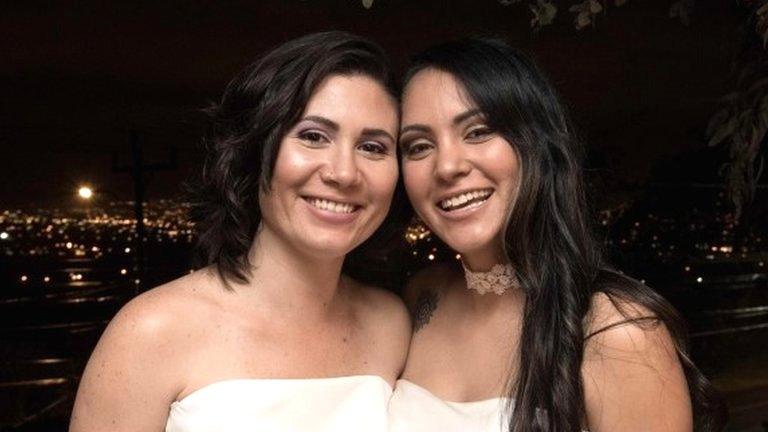Chile couples' joy as first same-sex marriages held
- Published
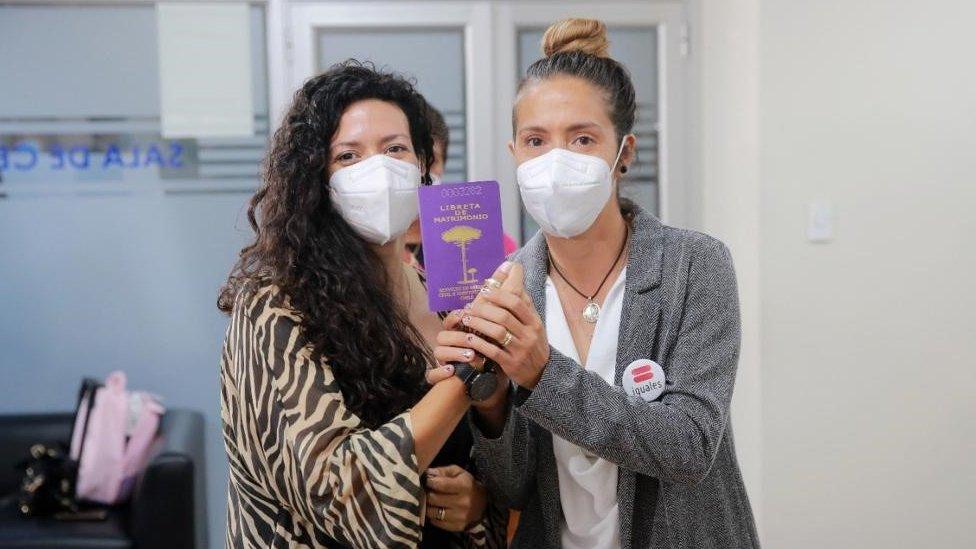
Consuelo Morales and Pabla Heuser were among the first same-sex couples to get married
Consuelo Morales Aros, 38, and her partner Pabla Heuser Amaya are overjoyed.
The two women, who have been together for 16 years, were among the first to tie the knot in Chile on Thursday after a landmark law came into effect allowing same-sex marriages.
Same-sex couples have been able to enter into civil unions in the overwhelmingly Catholic country since 2015.
But while being in a civil union meant that same-sex couples had more legal benefits than before, those benefits fell short of those afforded to married couples, especially in relation to children and their care.
Consuelo says she and Pabla are getting married for the sake of their two-year-old daughter Josefa.
"It was our dream that we both be her parents," says Consuelo, explaining that they had Josefa through reciprocal in vitro fertilisation. Consuelo supplied the egg and Pabla had the embryo implanted and carried the pregnancy.
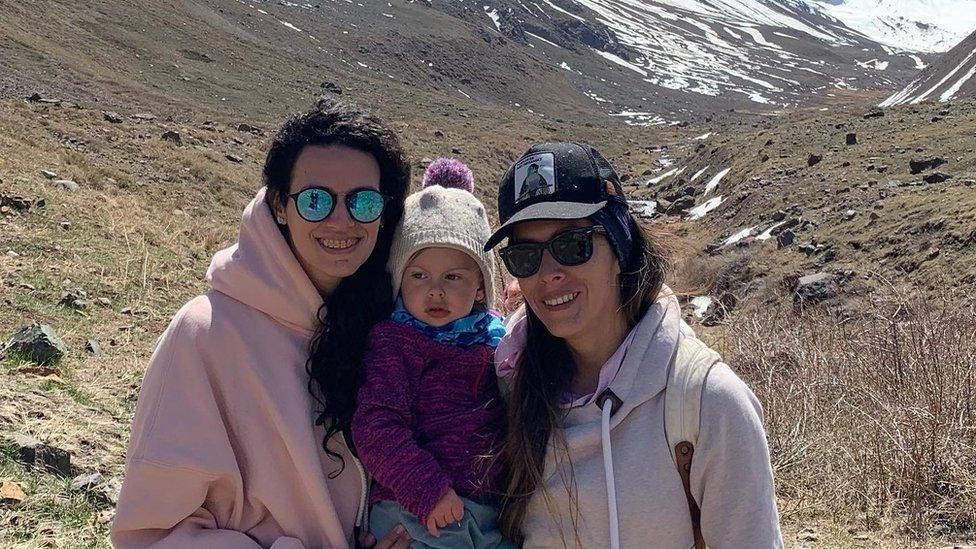
Consuelo and Pabla have been in a relationship for 16 years and have a daughter, Josefa
But until now, only the woman who gave birth - in this case Pabla - was legally recognised as the child's biological mother.
For Consuelo, this meant that she did not have any legal say in Josefa's medical care. And if she had separated from Pabla, she would not have had any legal rights when it came to Josefa's custody or upbringing.
Getting married will allow the two women to register Josefa as not just Pabla's daughter, but also Consuelo's.
Pabla says she is thrilled that their daughter "will finally have the two mothers she deserves instead of just one".
Surprise turn
Chile's LGBT community had long pushed for the legalisation of same-sex marriages, but a bill to that effect languished in Congress for four years.
Introduced by the left-wing President Michelle Bachelet in 2017, the bill was finally pushed through by her right-wing successor, Sebastian Piñera, in December 2021 - much to the shock of some of Mr Piñera's party colleagues and the Catholic Church.
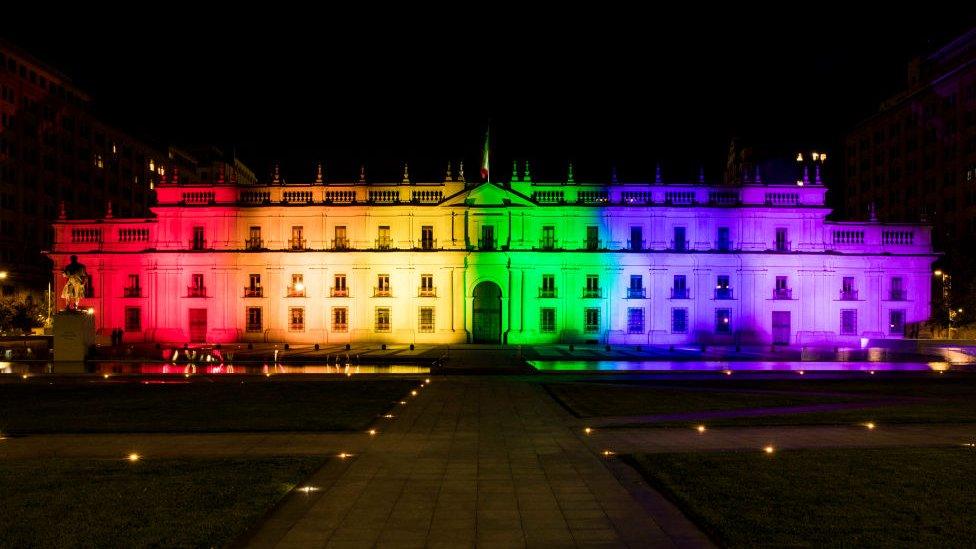
When the law was passed in December, the presidential palace was illuminated in the rainbow colours
Three months on, it has finally come into effect.
Javier Silva and his partner Jaime Nazar were the first to get married under the new law after "getting lucky" when the appointments opened up and they got the first slot.
Like Consuelo and Pabla, they too want to get full legal status as parents.
The couple have two children, 20-month-old Clemente and four-month-old Lola María.
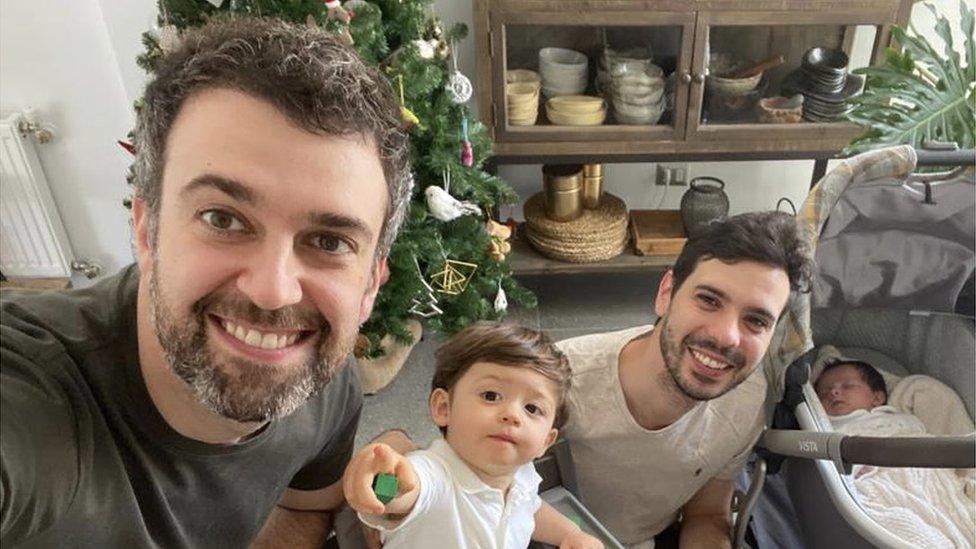
Javier Silva and his partner Jaime Nazar became the first same-sex couple to marry in Chile
Jaime is the biological father of Clemente and Javier is the biological father of Lola María. Both children were born to a surrogate mother in Colombia.
The couple say they are relieved that they will now be able to be legally recognised as the parents of both Clemente and Lola María.
Javier explains that under the old rules, he would have had no legal rights to Clemente if Jaime had died. All rights would have automatically gone to Jaime's parents as Clemente's next of kin.
While Javier and Jaime say they were always going to choose surrogacy, they are happy that the new law will make things easier for same-sex couples looking to adopt.
Until now, only one of the two individuals in a same-sex partnership could adopt and hold parental legal rights and responsibilities.
Javier also thinks that same-sex couples were not looked upon favourably. "Same-sex couples are always at the back of the line when it comes to adoption."
According to Isabel Amor, there are hundreds of same-sex couples who want to have their children legally recognised.
Ms Amor, the executive director of the LGBT rights group Fundación Iguales, says that her organisation is in touch with around 300 families but that there are probably many more who will eventually benefit from the change.
She says that by passing the bill, lawmakers finally caught up with the reality of what many Chileans wanted.
"This law allows us to show a new kind of family unit," she says.

You may be interested in watching:
Why is learning about LGBT history important?
- Published9 March 2022
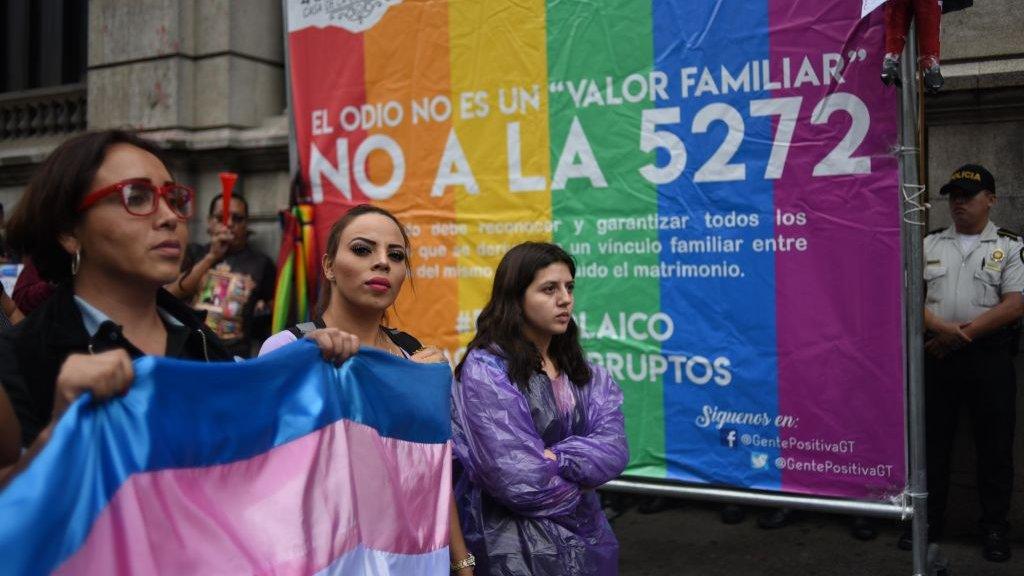
- Published26 September 2021
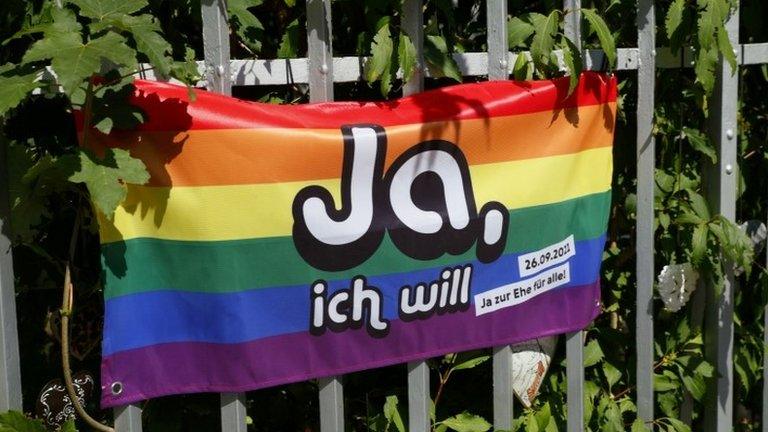
- Published17 March 2021
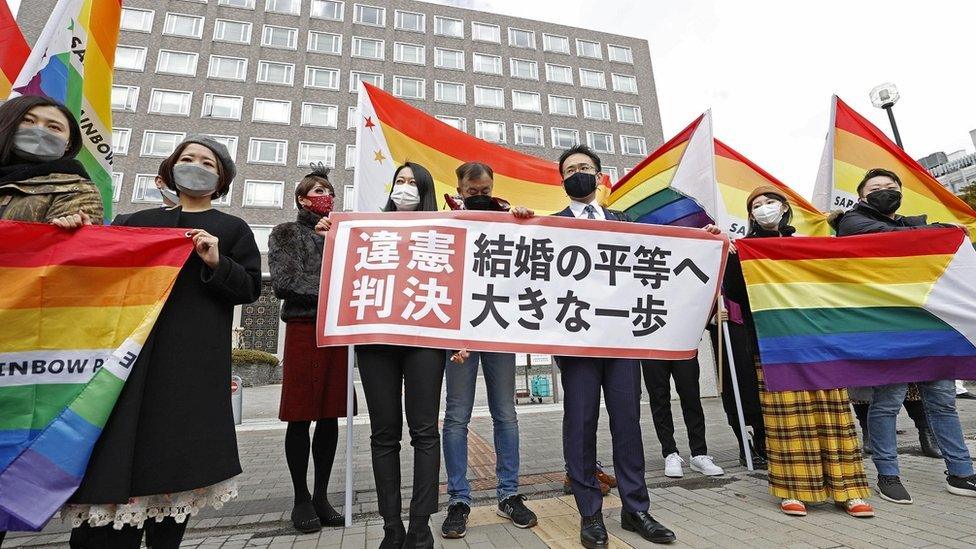
- Published26 May 2020
